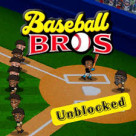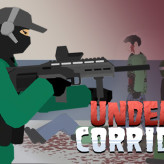Four In A Row
About Four In A Row
Four in a Row is a simple yet engaging game that can be played by players of all ages. It's a great test of strategy and foresight as you try to outmaneuver your opponent to be the first to connect four discs in a row. Whether you play against a friend or the computer, it's a fun and challenging game to enjoy.

How to play Four In A Row
Here's a guide on how to play and the controls (which are quite simple):
Game Setup:
- Board: The game is played on a grid typically consisting of 7 columns and 6 rows, making a total of 42 slots.
Controls:
- Mouse: To play, you use your mouse to interact with the game board.
How to Play:
Choose Your Color: Decide which player will be red and which will be yellow. Players take turns dropping their colored discs onto the game board.
Taking Turns: Players take turns dropping one of their discs into any of the empty slots in one of the columns on the game board.
Objective: The goal is to be the first to form a horizontal, vertical, or diagonal line of four of your colored discs in a row.
Blocking Opponent: While trying to connect your own four discs, be aware of your opponent's moves and try to block them from forming their own line of four.
Winning: The game ends as soon as one player successfully connects four of their discs in a row in any direction. That player is declared the winner.
Draw: If all 42 slots on the board are filled, and no player has achieved four in a row, the game ends in a draw.
Game Strategies:
- Start with the middle column: Many players like to start by dropping their discs into the middle column as it provides the most opportunities for forming different types of lines.
- Block your opponent: Pay attention to your opponent's moves and try to block their potential winning combinations.
- Plan ahead: Think several moves ahead to set up your winning combination while also trying to block your opponent.
- Corners and edges: These are strategic spots on the board because they limit your opponent's options.
BACK TO TOP

























